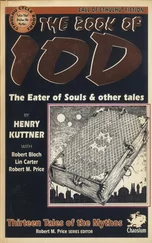Charles Henry Mackintosh - Notes on the Book of Deuteronomy, Volume I
Здесь есть возможность читать онлайн «Charles Henry Mackintosh - Notes on the Book of Deuteronomy, Volume I» — ознакомительный отрывок электронной книги совершенно бесплатно, а после прочтения отрывка купить полную версию. В некоторых случаях можно слушать аудио, скачать через торрент в формате fb2 и присутствует краткое содержание. Жанр: foreign_prose, foreign_antique, на английском языке. Описание произведения, (предисловие) а так же отзывы посетителей доступны на портале библиотеки ЛибКат.
- Название:Notes on the Book of Deuteronomy, Volume I
- Автор:
- Жанр:
- Год:неизвестен
- ISBN:нет данных
- Рейтинг книги:4 / 5. Голосов: 1
-
Избранное:Добавить в избранное
- Отзывы:
-
Ваша оценка:
- 80
- 1
- 2
- 3
- 4
- 5
Notes on the Book of Deuteronomy, Volume I: краткое содержание, описание и аннотация
Предлагаем к чтению аннотацию, описание, краткое содержание или предисловие (зависит от того, что написал сам автор книги «Notes on the Book of Deuteronomy, Volume I»). Если вы не нашли необходимую информацию о книге — напишите в комментариях, мы постараемся отыскать её.
Notes on the Book of Deuteronomy, Volume I — читать онлайн ознакомительный отрывок
Ниже представлен текст книги, разбитый по страницам. Система сохранения места последней прочитанной страницы, позволяет с удобством читать онлайн бесплатно книгу «Notes on the Book of Deuteronomy, Volume I», без необходимости каждый раз заново искать на чём Вы остановились. Поставьте закладку, и сможете в любой момент перейти на страницу, на которой закончили чтение.
Интервал:
Закладка:
How sad! and yet how else could it be? If they would not, in simple faith, go up into the land, there remained nothing for them but turning back into the wilderness. But to this they would not submit. They would neither avail themselves of the provisions of grace nor bow to the sentence of judgment.—"Then ye answered and said unto me, 'We have sinned against the Lord; we will go up and fight, according to all that the Lord our God commanded us.' And when ye had girded on every man his weapon of war, ye were ready to go up into the hill."
This looked like contrition and self-judgment; but it was hollow and false. It is a very easy thing to say , "We have sinned." Saul said it in his day; but he said it without heart, without any genuine sense of what he was saying. We may easily gather the force and value of the words "I have sinned" from the fact that they were immediately followed by " Honor me now, I pray thee, before the elders of my people." What a strange contradiction!—"I have sinned," yet "Honor me." If he had really felt his sin, how different his language would have been! how different his spirit, style, and deportment! but it was all a solemn mockery. Only conceive a man full of himself, making use of a form of words, without one atom of true heart-feeling; and then, in order to get honor for himself, going through the empty formality of worshiping God. What a picture! Can any thing be more sorrowful? How terribly offensive to Him who desires truth in the inward parts, and who seeks those to worship Him who worship Him in spirit and in truth! The feeblest breathings of a broken and contrite heart are precious to God; but, oh, how offensive to Him are the hollow formalities of a mere religiousness, the object of which is to exalt man in his own eyes and in the eyes of his fellows! How perfectly worthless is the mere lip-confession of sin where the heart does not feel it! As a recent writer has well remarked, "it is an easy thing to say, 'We have sinned,' but how often we have to learn that it is not the quick, abrupt confession of sin which affords evidence that sin is felt! It is rather a proof of hardness of heart. The conscience feels that a certain act of confessing the sin is necessary, but perhaps there is hardly any thing which more hardens the heart than the habit of confessing sin without feeling it. This, I believe, is one of the great snares of christendom from of old and now, that is, the stereotyped acknowledgment of sin—the mere habit of hurrying through a formula of confession to God. I dare say we have almost all done so, without referring to any particular mode; for, alas! there is formality enough; and without having written forms, the heart may frame forms of its own, as we may have observed, if not known it, in our own experience, without finding fault with other people." 4 4 "Lectures Introductory to the Pentateuch," by W. Kelly.
Thus it was with Israel at Kadesh. Their confession of sin was utterly worthless; there was no truth in it. Had they felt what they were saying, they would have bowed to the judgment of God, and meekly accepted the consequence of their sin. There is no finer proof of true contrition than quiet submission to the governmental dealings of God. Look at the case of Moses. See how he bowed his head to the divine discipline. "The Lord," he says, "was angry with me for your sakes, saying, 'Thou also shalt not go in thither. But Joshua the son of Nun, which standeth before thee, he shall go in thither: encourage him; for he shall cause Israel to inherit it.'"
Here, Moses shows them that they were the cause of his exclusion from the land; and yet he utters not a single murmuring word, but meekly bows to the divine judgment, not only content to be superseded by another, but ready to appoint and encourage his successor. There is no trace of jealousy or envy here. It was enough for that beloved and honored servant if God was glorified and the need of the congregation met. He was not occupied with himself or his own interests, but with the glory of God and the blessing of His people.
But the people manifested a very different spirit. "We will go up and fight." How vain! How foolish! When commanded by God and encouraged by His true-hearted servants to go up and possess the land, they replied, "Whither shall we go up?" and when commanded to turn back into the wilderness, they replied, "We will go up and fight."
"And the Lord said unto me, 'Say unto them, Go not up, neither fight; for I am not among you; lest ye be smitten before your enemies.' So I spake unto you; and ye would not hear, but rebelled against the commandment of the Lord, and went presumptuously up into the hill. And the Amorites, which dwelt in that mountain, came out against you, and chased you, as bees do, and destroyed you in Seir, even unto Hormah."
It was quite impossible for Jehovah to accompany them along the path of self-will and rebellion; and, most assuredly, Israel, without the divine presence, could be no match for the Amorites. If God be for us and with us, all must be victory; but we cannot count on God if we are not treading the path of obedience. It is simply the height of folly to imagine that we can have God with us if our ways are not right. "The name of the Lord is a strong tower, the righteous runneth into it and is safe." But if we are not walking in practical righteousness, it is wicked presumption to talk of having the Lord as our strong tower.
Blessed be His name, He can meet us in the very depths of our weakness and failure, provided there be the genuine and hearty confession of our true condition; but to assume that we have the Lord with us while we are doing our own will and walking in palpable unrighteousness, is nothing but wickedness and hardness of heart. "Trust in the Lord, and do good"—this is the divine order; but to talk of trusting in the Lord while doing evil, is to turn the grace of our God into lasciviousness, and place ourselves completely in the hands of the devil, who only seeks our moral ruin. "The eyes of the Lord run to and fro throughout the whole earth, to show Himself strong in the behalf of them whose heart is perfect toward Him." When we have a good conscience, we can lift up the head and move on through all sorts of difficulties; but to attempt to tread the path of faith with a bad conscience, is the most dangerous thing in this world. We can only hold up the shield of faith when our loins are girt with truth, and the breast covered with the breastplate of righteousness.
It is of the utmost importance that Christians should seek to maintain practical righteousness, in all its branches. There is immense moral weight and value in these words of the blessed apostle Paul, "Herein do I exercise myself, to have always a conscience void of offense toward God and men." He ever sought to wear the breastplate, and to be clothed in that white linen which is the righteousness of saints. And so should we. It is our holy privilege to tread, day by day, with firm step, the path of duty, the path of obedience, the path on which the light of God's approving countenance ever shines; then, assuredly, we can count on God, lean upon Him, draw from Him, find all our springs in Him, wrap ourselves up in His faithfulness, and thus move on, in peaceful communion and holy worship, toward our heavenly home.
It is not, we repeat, that we cannot look to God in our weakness, our failure, and even when we have erred and sinned. Blessed be His name, we can; and His ear is ever open to our cry. "If we confess our sins, He is faithful and just to forgive us our sins, and to cleanse us from all unrighteousness." (1 John i.) "Out of the depths have I cried unto thee, O Lord. Lord, hear my voice: let Thine ears be attentive to the voice of my supplications. If Thou, Lord, shouldest mark iniquities, O Lord, who shall stand? But there is forgiveness with Thee, that Thou mayest be feared." (Ps. cxxx.) There is absolutely no limit to divine forgiveness, inasmuch as there is no limit to the extent of the atonement, no limit to the virtue and efficacy of the blood of Jesus Christ, God's Son, which cleanseth from all sin; no limit to the prevalency of the intercession of our adorable Advocate, our great High-Priest, who is able to save to the uttermost—right through and through to the end—them that come unto God by Him.
Читать дальшеИнтервал:
Закладка:
Похожие книги на «Notes on the Book of Deuteronomy, Volume I»
Представляем Вашему вниманию похожие книги на «Notes on the Book of Deuteronomy, Volume I» списком для выбора. Мы отобрали схожую по названию и смыслу литературу в надежде предоставить читателям больше вариантов отыскать новые, интересные, ещё непрочитанные произведения.
Обсуждение, отзывы о книге «Notes on the Book of Deuteronomy, Volume I» и просто собственные мнения читателей. Оставьте ваши комментарии, напишите, что Вы думаете о произведении, его смысле или главных героях. Укажите что конкретно понравилось, а что нет, и почему Вы так считаете.












